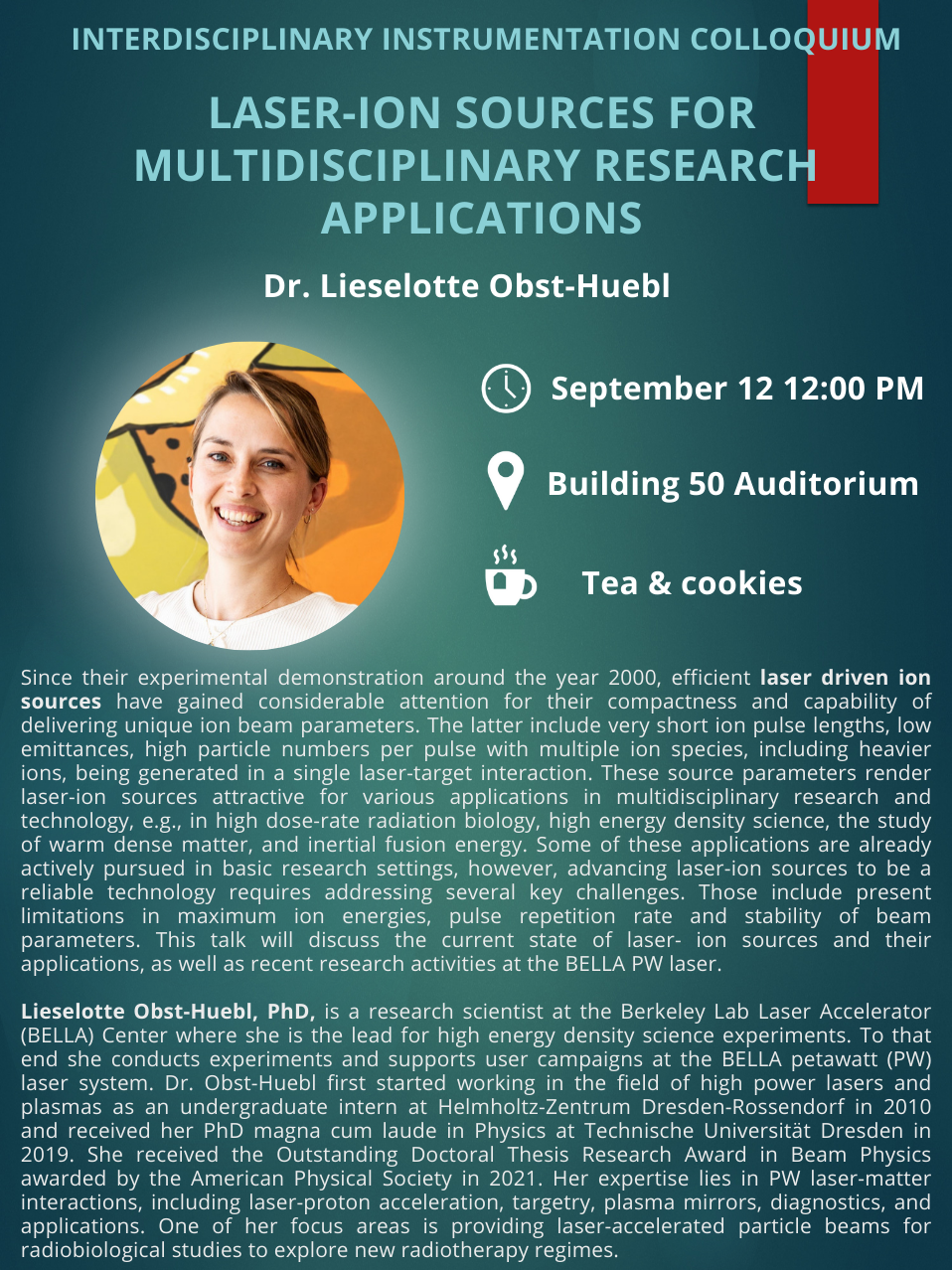Laser-ion sources for multidisciplinary research applications
by
Auditorium
50

Abstract: Since their experimental demonstration around the year 2000, efficient laser-driven ion sources have gained considerable attention for their compactness and capability of delivering unique ion beam parameters. The latter include very short ion pulse lengths, low emittances, high particle numbers per pulse with multiple ion species, including heavier ions, being generated in a single laser-target interaction. These source parameters render laser-ion sources attractive for various applications in multidisciplinary research and technology, e.g., in high dose-rate radiation biology, high energy density science, the study of warm dense matter, and inertial fusion energy. Some of these applications are already actively pursued in basic research settings, however, advancing laser-ion sources to be a reliable technology requires addressing several key challenges. Those include present limitations in maximum ion energies, pulse repetition rate and stability of beam parameters. This talk will discuss the current state of laser-ion sources and their applications, as well as recent research activities at the BELLA PW laser.
Bio: Lieselotte Obst-Huebl, PhD, is a research scientist at the Berkeley Lab Laser Accelerator (BELLA) Center where she is the lead for high energy density science experiments. To that end she conducts experiments and supports user campaigns at the BELLA petawatt (PW) laser system. Dr. Obst-Huebl first started working in the field of high power lasers and plasmas as an undergraduate intern at Helmholtz-Zentrum Dresden-Rossendorf in 2010 and received her PhD magna cum laude in Physics at Technische Universität Dresden in 2019. She received the Outstanding Doctoral Thesis Research Award in Beam Physics awarded by the American Physical Society in 2021. Her expertise lies in PW laser-matter interactions, including laser-proton acceleration, targetry, plasma mirrors, diagnostics, and applications. One of her focus areas is providing laser-accelerated particle beams for radiobiological studies to explore new radiotherapy regimes.
Jamie Inman
